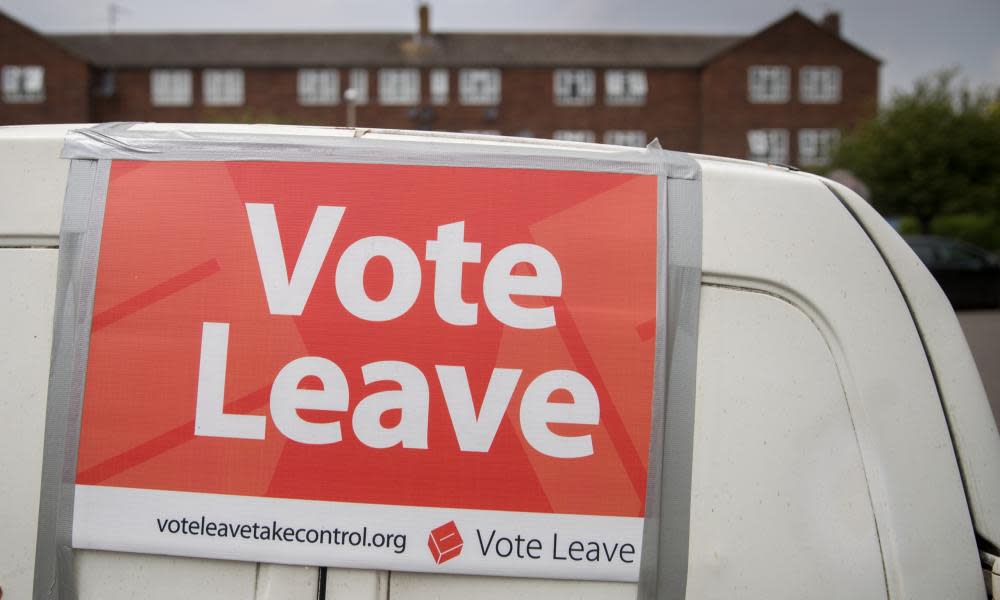Police will not examine claims of Russian meddling in Brexit vote

Police have said they will not investigate allegations of Russian state interference in the 2016 EU referendum or complaints about the involvement of foreign-based companies.
Confirmation of the narrow scope of any future police investigation comes as lawyers for the Fair Vote Project prepare to lodge a judicial review challenge this week over the government’s refusal to hold an inquiry.
Downing Street’s refusal is partially on the grounds that both the Metropolitan police and the Electoral Commission are dealing with all such allegations. The police have confirmed they are considering the matter but have not given details about which areas they may be looking at.
A letter sent by a Metropolitan police lawyer to the Fair Vote Project contains a list of topics deemed to be outside the scope of any investigation. It states that the force is not investigating certain areas including:
• Russian interference in the referendum campaign. “International bodies and states cannot commit criminal offences” under electoral legislation, the letter explains.
• The involvement of foreign-based companies, including political strategy and data analytics companies.
• Truthfulness during the campaign. “This is not a criminal offence per se and therefore not a police matter,” the letter says.
• The scale of campaign donations in 2016.
At the weekend Damian Collins, the Conservative chair of the Commons digital, culture, media and sport committee, called on Scotland Yard to explain why it had not opened a criminal investigation into three pro-Brexit campaigns that the Electoral Commission found had broken the law.
In July the Electoral Commission fined Vote Leave £61,000 and reported it to the police after the watchdog found “significant evidence” of coordination with another campaign group, BeLeave.
John Halford, of the London law firm Bindmans who is acting for the Fair Vote Project, said: “The responses to Fair Vote’s letters have revealed a frenzied game of ‘pass the parcel’ going on behind the scenes between official bodies. The government says the Electoral Commission and police are investigating matters.
“The Electoral Commission has passed responsibility to the police for two specific issues. The police have yet to decide whether to investigate them and on every other issue – including, critically, Russian state interference – they disclaim responsibility. This is why the Mueller inquiry was set up in the US and why we need a public inquiry here with a similar wide-ranging remit and powers. Fair Vote is ready to challenge the refusal not to establish one.”
A Met spokesperson said: “The Electoral Commission has made two referrals to the MPS [Metropolitan police service] regarding potential criminal offences under section 123(4) PPERA [Political Parties, Elections and Referendums Act] in relation to the responsible person. The first referral was received on 11 May 2018 and concerns Leave.EU; the second referral was received on 17 July 2018 and concerns Vote Leave and BeLeave.
“In relation to both referrals, subsequently on 7 September 2018 the MPS received over 900 documents from the Electoral Commission, which are being assessed by the MPS in order to make an informed decision as to whether a criminal investigation is required.”

 Yahoo News
Yahoo News 
